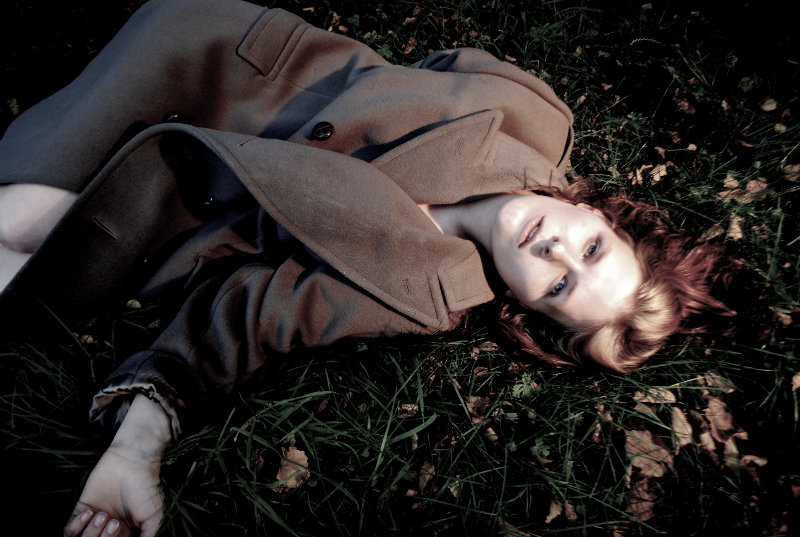As I settled into a comfy camping chair in a pleasant suburban garden in Leith I was filled with excitement at the experience about to unfold. I had been given a dark poncho and a set of headphones to wear, and I took in the scene, an idyllic garden, lit beautifully beneath a starry sky. An ambient soundscape drifted into my ears and I awaited the start eagerly, nestled in the warm summer night.
Such promise blossoms at the start of Dark Matter, Vision Mechanics’ latest site-specific performance, presented at this year’s Fringe as part of the British Council’s Edinburgh Showcase. And as Emma Anderson appears through the trees, whispering softly into our ears, the excitement does not abate. What unfolds is a remarkably committed performance. The script, by Chris Lee, resembles poetry or spoken word; exploring issues of love, loss, fear, self-loathing, it is a melee of deep introspection that delves into the darker fathoms of the human heart.
The piece is accompanied by a live soundscape, by Tam Treanor, a frankly superb addition that adds a scintillating quality to Anderson’s performance as her words are looped and distorted. A drone plays through the whole piece, giving an eerie atmosphere to the idyllic setting. The lighting too, by Charles Macintyre, supports the performance very well, adding an otherworldly haze to the garden.
But soon the tone that is established at the start, a sort of melancholy moan in Anderson’s delivery, becomes a little grating as it refuses to change or fluctuate. Before long the high pitch of drama that she uses when speaking the weighty text fails to connect, and I found myself distanced from her journey.
The performance keeps at this pitch throughout as Anderson screams and moans through the script. Starting at such a high level of drama the piece has nowhere to go, and soon I suffer from a sort of dramatic saturation and find myself lost and distanced. The piece would benefit from having some space in the text, more subtlety in the delivery, and a chance to understand the central character as a real person, not a bubbling volcano of emotion seemingly working only to serve the poetry of the script.
But Anderson must be commended for her conviction: she gives everything to the role. The whole piece is a unique experience; I was quite seduced by the drama of the set-up, but the content, far too forceful, lacking subtlety, left me unaffected.


